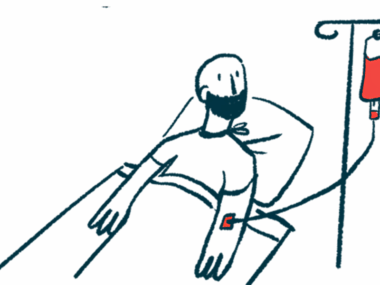Vyvgart eases gMG impact on daily living in seronegative adults in trial
Developer to seek FDA expansion of therapy's approved use in US
Written by |

Treatment with Vyvgart (efgartigimod alfa-fcab) helped reduce the impact of generalized myasthenia gravis (gMG) on activities of daily living among adults who tested negative for antibodies targeting the acetylcholine receptor (AChR) — the most common cause of the disease.
That’s according to top-line data from an ongoing Phase 3 clinical study called ADAPT SERON (NCT06298552), which is testing how well the Argenx therapy works compared with a placebo in seronegative patients — those who test negative for anti-AChR antibodies and often have limited treatment options.
Participants in the study “achieved a statistically significant and clinically meaningful improvement” in their ability to perform daily tasks, Argenx said in a company press release.
Based on these positive data, the company plans to ask the U.S. Food and Drug Administration to expand the approved use of Vyvgart, currently limited to adults with gMG who test positive for anti-AChR antibodies. Argenx said it will submit a supplemental biologics license application by the end of the year, with a goal of broadening the scope of patients who may benefit from the infusion therapy.
“The ADAPT SERON study represents our longstanding commitment to the MG community and our ambition to help all MG patients address this debilitating condition and reach as many MG patients as we can,” said Luc Truyen, MD, PhD, Argenx’s chief medical officer.
Myasthenia gravis (MG) occurs when the immune system produces self-reactive antibodies that interfere with the communication between nerve and muscle cells, causing muscle weakness and a number of other symptoms. These antibodies most often target AChR, a protein found on the surface of muscle cells.
Given directly into the bloodstream once weekly over four-week cycles, Vyvgart works by blocking a protein called neonatal Fc receptor (FcRn), which extends the life of antibodies by preventing their destruction in the blood. Blocking FcRn helps clear antibodies from circulation — including the self-reactive ones that drive MG.
Trial results show Vyvgart can help patients with limited treatment options
In line with reports that Vyvgart may provide benefits to seronegative patients, the ADAPT SERON study is testing how well the therapy works in 119 adults with gMG who are positive for muscle-specific tyrosine kinase (MuSK), positive for low-density lipoprotein receptor-related protein 4 (LRP4), or triple-seronegative with no detectable antibodies against AChR, MuSK, or LRP4.
Patients were randomly assigned to receive either four weekly infusions of Vyvgart or a placebo, followed by five weeks of monitoring. The participants could then enter an open-label extension where all received Vyvgart for two cycles of four weekly infusions with a four-week break, with additional cycles depending on clinical status.
The main goal was to watch for changes in MG Activities of Daily Living (MG-ADL) scores from baseline, or the study’s start, to day 29. MG-ADL is a clinical tool for assessing disease activity that evaluates the impact of MG on daily functions such as speaking, chewing, swallowing, and breathing. It also assesses strength in the arms and legs.
The study achieved its main goal, Argenx now announced, showing statistically significant and clinically meaningful improvement in MG-ADL scores for seronegative patients treated with Vyvgart compared with placebo.
The results of the ADAPT SERON study, the largest study to date of AChR-[antibody] seronegative gMG, confirm that Vyvgart now has the potential to be a targeted, effective, safe, and necessary treatment for patients living with gMG, regardless of autoantibody status.
The therapy also was well tolerated, with a safety profile consistent with that seen in patients who tested positive for anti-AChR antibodies.
“The results of the ADAPT SERON study, the largest study to date of AChR-[antibody] seronegative gMG, confirm that Vyvgart now has the potential to be a targeted, effective, safe, and necessary treatment for patients living with gMG, regardless of autoantibody status,” said James F. Howard Jr., MD, principal investigator for the ADAPT SERON study and a professor of neurology, medicine, and allied health at the University of North Carolina at Chapel Hill School of Medicine.
“Paired with our existing knowledge, these data demonstrate that [disease-causing antibodies] are underlying drivers of gMG across patient subtypes,” Howard said, calling this “a critical advancement in the management of this debilitating and unpredictable disease for patients with limited treatment options.”
Detailed results from ADAPT SERON will be presented at a future medical meeting, according to Argenx.




Leave a comment
Fill in the required fields to post. Your email address will not be published.